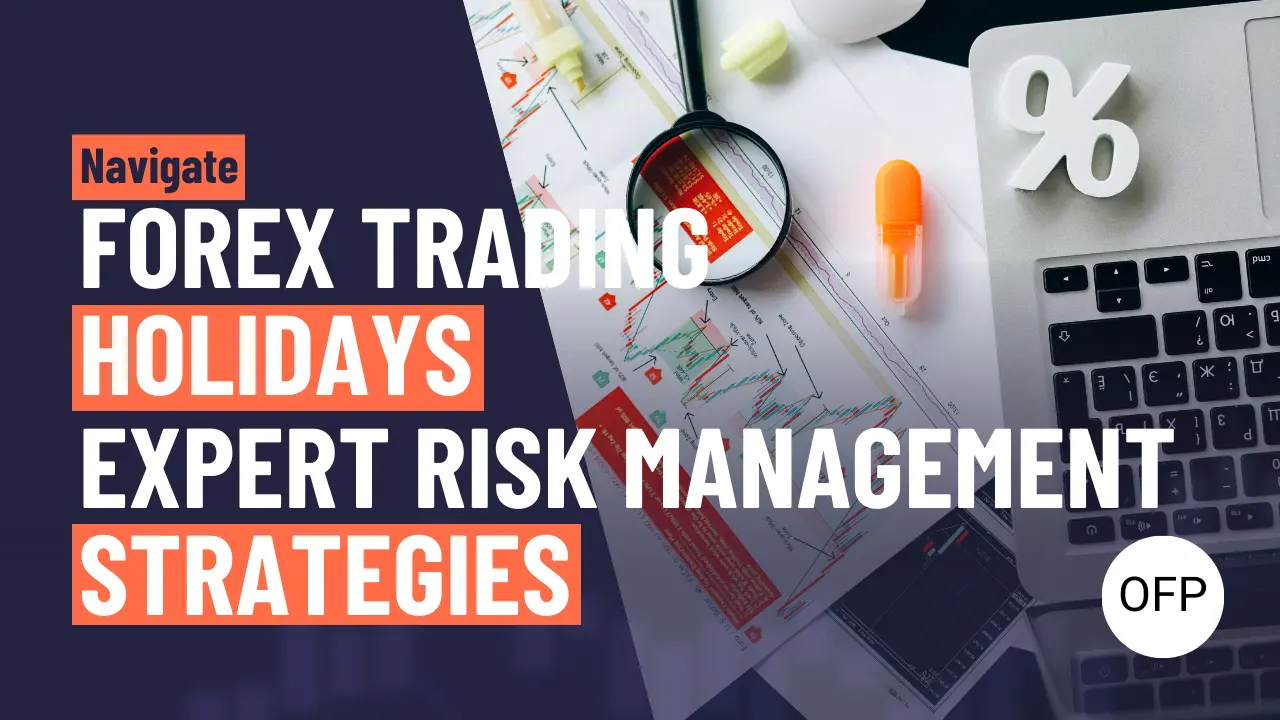Table of Contents
Forex Trading Holidays of 2024

As we step into a new year, traders around the world are gearing up for another year of market dynamics, trends, and potential opportunities. However, seasoned traders know that understanding the trading calendar is just as crucial as analyzing market charts. Forex trading holidays play a pivotal role in the financial markets, influencing liquidity, volatility, and overall market behavior. These days mark a temporary pause in trading activities, impacting various financial instruments, including stocks, bonds, and commodities. Understanding the schedule of trading holidays is essential for traders to plan their strategies, manage risks, and avoid unexpected market movements. Major Trading Holidays in 2024:
- New Year’s Day – January 1, 2024
- Good Friday – April 5, 2024
- Independence Day (US) – July 4, 2024
- Labor Day (US) – September 2, 2024
- Thanksgiving Day (US) – November 28, 2024
- Christmas Day – December 25, 2024
These holidays are observed by major financial markets, impacting trading hours and liquidity levels. It’s crucial for traders to be aware of these dates and plan their trading activities accordingly.
Impact of Trading Holidays on Market Liquidity and Volatility
Trading holidays have a substantial impact on market liquidity and volatility. As institutional investors and traders typically opt for time off during these periods, the market experiences a notable reduction in trading activity. This decline in liquidity manifests as higher bid-ask spreads, the difference between the buying and selling prices of assets.
The widened spreads make it more challenging and costly for market participants to execute trades promptly, contributing to a less liquid market environment. Moreover, the diminished trading volume during holidays exacerbates market volatility. With fewer participants actively buying and selling, the market becomes more susceptible to sharp and unpredictable price movements.
Any unexpected news, economic developments, or geopolitical events during these low-liquidity periods can trigger substantial price swings. Investors may face increased challenges in accurately gauging the market sentiment and assessing the true value of assets. In essence, the effects of Forex trading holidays on market liquidity and volatility create an environment where executing trades becomes riskier and more costly, requiring participants to exercise caution and adapt their strategies to navigate the heightened market dynamics.
Best forex assets to trade during holidays
Navigating the financial markets during trading holidays requires a strategic approach, and choosing the right forex assets can significantly impact trading success. Among the various options, certain forex currencies, stocks, and cryptocurrencies stand out for their liquidity and historical behavior during these periods. In the forex market, major currency pairs like EUR/USD, USD/JPY, and GBP/USD often retain reasonable liquidity during trading holidays. These pairs are closely linked to major global economies, providing a degree of stability amidst potential volatility.
When it comes to stocks, blue-chip companies with strong fundamentals and international exposure tend to be more resilient during trading holidays. These stocks often belong to industries like technology, healthcare, and consumer goods. Examples include companies like Apple (AAPL), Microsoft (MSFT), and Tesla. In the cryptocurrency space, established digital assets like Bitcoin (BTC) and Ethereum (ETH) are known for their relatively stable performance during trading holidays. As the most widely traded cryptocurrencies, they attract a consistent level of market participation.
Strategies for trading holidays
Developing effective strategies for profitable trading during Forex trading holidays requires a nuanced understanding of the unique market conditions prevalent during these periods. One approach is to capitalize on the reduced liquidity by adopting a conservative trading stance. Traders may choose to reduce position sizes, avoid highly leveraged trades, and implement tight risk management measures to mitigate the increased risk associated with lower liquidity.
Additionally, some traders opt for a strategic approach centered around news and events that could impact the market during holidays. Staying informed about scheduled economic releases, corporate announcements, or geopolitical developments allows traders to anticipate potential market-moving events and position themselves accordingly. Furthermore, algorithmic trading strategies that account for the altered market dynamics during holidays can be advantageous.
These algorithms may incorporate filters to adapt to lower liquidity and increased volatility, helping traders navigate the market more efficiently. Lastly, diversification and asset allocation strategies can be crucial during trading holidays. Spreading investments across different asset classes can provide a hedge against unexpected events and reduce the overall risk exposure. Successful trading during holidays involves a combination of risk management, strategic positioning, and adaptability to the specific challenges posed by reduced liquidity and increased volatility.
Risk management for trading holidays
Effectively managing risks during Forex trading holidays is crucial for consistent success, given the periods’ reduced liquidity and heightened volatility. To navigate these challenges, traders must adopt a proactive risk management approach. Reassessing position sizes is paramount, considering the potential for increased price slippage due to lower liquidity.
Tightening risk controls and setting appropriate stop-loss orders help mitigate potential losses during unexpected market movements. Diversifying the portfolio is key to minimizing exposure to specific risks and enhancing overall risk management. Staying informed about economic calendars and global events is essential, as awareness of potential catalysts and news developments aids in making informed decisions and adjusting trading strategies accordingly.
Utilizing limit orders instead of market orders during trading holidays provides greater control over execution prices, preventing unfavorable fills in illiquid market conditions. Maintaining a disciplined mindset and acknowledging the inherent uncertainties of trading during holidays are fundamental aspects of effective risk management.
Conclusion
As you navigate the challenges and opportunities presented by trading holidays, consider partnering with OFP Proprietary firm for a unique and rewarding trading experience. OFP offers trading opportunities, combining cutting-edge technology with a collaborative and supportive trading community.






